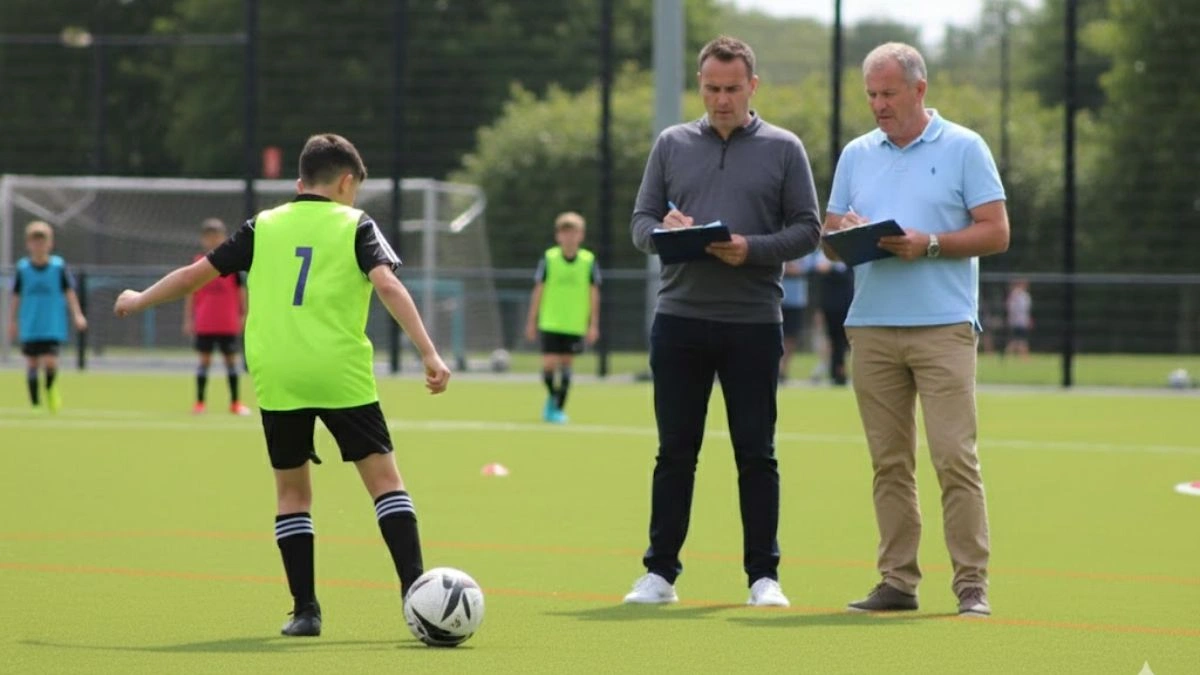How to Get Scouted: What Football Scouts Actually Look For in Players
Every young footballer dreams of the moment they are spotted by a scout, that life-changing opportunity when potential turns into a professional pathway. But in a world full of talent, how can one player stand out among thousands?
The truth is that getting scouted is not just about scoring goals or showing flashy skills. It’s about showing qualities that go beyond the ball, discipline, intelligence, attitude, and consistency. This article explores what scouts truly look for, how to prepare for that big moment, and how to ensure you’re ready when opportunity comes calling.
What Football Scouts Actually Look For
Football scouts are trained to find players who can make an impact not just today, but in the long run. While fans often see goals and dribbles, scouts observe the complete footballer, on and off the pitch.
Scouts assess a player’s technical skills, including first touch, control under pressure, passing range, and game intelligence. But that’s just one part of the equation. They look at physical fitness, such as stamina, speed, strength, and agility, to ensure a player can handle the demands of competitive football. Above all, mental strength, the ability to stay calm, focused, and adaptable, often separates a good player from a great one.
The Importance of Football Intelligence
One of the most underrated aspects scouts focus on is football IQ. This is the ability to read the game, make quick decisions, and adapt to different tactical setups.
A player with strong football intelligence doesn’t just follow instructions; they anticipate situations. They understand positioning, move off the ball efficiently, and recognize when to press or hold back. Scouts know that intelligence cannot be easily taught, it’s built through awareness, practice, and deep understanding of the game.
The Right Attitude and Work Ethic
Talent can get attention, but attitude keeps it. Scouts carefully observe how a player behaves before, during, and after the match.
Does the player listen to the coach? Do they encourage teammates? Do they stay composed after a mistake? A footballer with humility and hunger for improvement always stands out. Scouts are drawn to players who show consistency in training, arrive on time, respect others, and never stop learning. These habits reflect professionalism, the foundation of any successful football career.
Physical and Technical Balance
Modern football demands complete players. Scouts look for athletes who blend technique with physicality.
A technically gifted player who lacks fitness may struggle to survive the pace of the professional game. Similarly, a physically dominant player with poor control or awareness can easily get outplayed. The balance between the two is vital. Regular training, balanced diet, proper rest, and professional guidance help players develop this equilibrium that scouts value highly.
Off-the-Pitch Behavior Matters

In today’s digital world, what you do off the pitch can be as important as what you do on it. Scouts and clubs often check a player’s social media behavior, discipline record, and personal habits.
A player who represents themselves well publicly and privately is seen as a lower risk investment. Clubs want role models, individuals who can inspire, stay focused, and uphold the image of the team. Maintaining professionalism in every aspect of life greatly improves a player’s chances of being scouted and signed.
How to Increase Your Chances of Getting Scouted
To improve your visibility and chances, you must combine performance with preparation.
- Join Recognized Local Clubs or Academies: These networks are often connected to scouts and professional teams.
- Participate in Trials and Tournaments: Exposure is everything, scouts often attend youth and regional events.
- Build a Strong Online Presence: Create highlight videos and maintain a professional digital profile.
- Seek Feedback from Coaches: Learn from constructive criticism and keep improving weak areas.
- Stay Consistent: Scouts track players over time, not just in one game. Regular performances matter most.
By focusing on all these areas, players can build a solid reputation that naturally attracts scout attention.
Mental Resilience: The Silent Factor
Not everyone gets scouted quickly, and rejection is part of the journey. Scouts notice how players handle setbacks, a missed goal, a loss, or not being selected.
Those who show resilience, return stronger, and continue improving reflect the mindset of professionals. Scouts admire mental toughness, because football at higher levels is as much about mentality as it is about skill. Staying patient and motivated through ups and downs often defines long-term success.
Getting scouted is not luck, it’s a preparation meeting opportunity. Scouts are not looking for perfection; they’re looking for promise. Players who combine skill, fitness, intelligence, and discipline are always noticed.
Football is full of hidden gems waiting to be discovered, and every training session, every match, and every effort counts. Stay focused, stay humble, and believe that the right eyes will see your hard work when you least expect it.
FAQs
Q1. How can I get noticed by a football scout?
A. Join reputed academies, perform consistently, attend trials, and maintain professionalism on and off the pitch.
Q2. What age do football scouts usually look for players?
A. Most scouts focus on players between 13 and 21, but late bloomers also get noticed through strong performances.
Q3. Do football scouts watch local tournaments?
A. Yes, scouts regularly attend local, regional, and school-level competitions to discover fresh talent.
Q4. Can I contact football scouts directly?
A. While you can share your highlight videos and career progress online, it’s best to go through clubs or verified agents.
Q5. How do I prepare for a football trial?
A. Train regularly, focus on fitness, learn to stay calm under pressure, and play for the team, not just yourself.





















